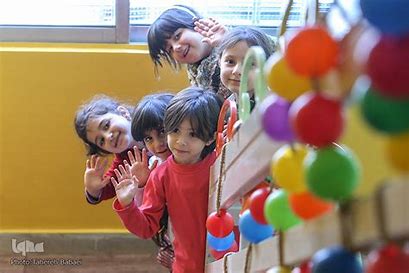Parenting is a responsibility entrusted by Allah, and in Islam, it goes beyond providing basic needs. Islamic parenting focuses on nurturing children with strong moral character, a deep connection with Allah, and the ability to navigate the complexities of life with faith. However, in today’s digital era, upholding Islamic values in parenting can be challenging. Let’s explore the core principles of Islamic parenting based on a research by At-Tarbiyat: Jurnal Pendidikan Islam.
Table of Contents
The Foundation of Islamic Parenting
Islamic parenting is based on the Quran and Sunnah. Parents are instructed to teach their children good manners, faith, and righteousness.
Allah says in the Quran, Surah Tehreem verse # 6:
“O you who have believed, protect yourself and your families from a Fire whose fuel is people and stones, over which are (appointed) angels, harsh and severe; they do not disobey Allah in what He commands them but do what they are commended”
This verse highlights the importance of guiding children towards righteousness to ensure their success in this life and the Hereafter. The Prophet Muhammad (Peace Be Upon Him) also emphasized the responsibility of parents in shaping their children’s character.
Teaching Islamic Values from an Early Age
One of the most important aspects of Islamic parenting is instilling Islamic values in children from a young age. This includes:
- Teaching Tawheed: Help children understand the oneness of Allah and help them recognize the importance of worshiping Allah alone.
- Encouraging Salah (Prayer): The Prophet (peace be upon him) advised parents to start encouraging their children to pray at the age of seven and discipline them at ten if they neglect it.
- Modeling Good Character (Akhlaq): Children learn by observing their parents. Demonstrating kindness, honesty, patience, and respect is essential in raising righteous children.
The Role of Discipline in Islamic Parenting
Islam encourages a balanced approach to discipline. It should be firm yet loving. The Prophet (PBUH) never used harsh punishment but corrected behavior with wisdom and patience. Some key principles of discipline in Islamic parenting include:
- Setting clear boundaries based on Islamic teachings.
- Encouraging positive behavior with rewards and praises.
- Correcting mistakes with patience and understanding.
The Challenges of Modern Parenting
In today’s world, technology and social influences pose challenges to Islamic parenting. Parents must be vigilant about:
- Social media: Teach children responsible use of technology while ensuring they are exposed to beneficial content.
- Peer Pressure: Encouraging children to choose righteous friends and remain firm in their Islamic identity.
- Globalization and Cultural Influence: Maintain a balance between adapting to modern life and preserving Islamic values.
Strengthening Faith Through Family Practices

Family plays a crucial role in a child’s spiritual development. Some practical ways to strengthen faith at home include:
- Reading the Quran together and discussing its meaning.
- Attending Islamic gatherings and community events.
- Encouraging acts of charity and kindness.
- Making Dua together and showing reliance on Allah.
Community Support in Islamic Parenting
The role of the community is vital in reinforcing Islamic values. Involving children in mosque activities, Islamic classes, and social services programs help them stay connected to their faith.
Parenting with Love and Mercy
The Prophet Muhammad (Peace Be Upon Him) was the best examples of a loving and compassionate parent. He showed kindness to children and treated them with affection. Islamic Parenting should be rooted in love, care, and understanding.
Conclusion
Islamic Parenting is a lifelong journey that requires patience, dedication, and a strong connection with Allah. By following the teachings of the Quran and Sunnah, setting a good example, and adapting to modern challenges with wisdom to fulfill this noble responsibility and guide our children towards righteousness. Ameen

